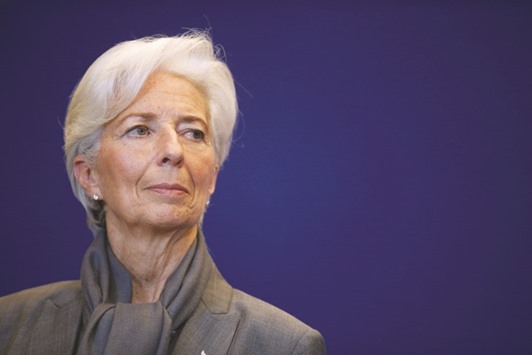Five years ago Christine Lagarde burst through the glass ceiling at one of the world’s leading institutions, becoming the first woman to head the International Monetary Fund (IMF).
Her ascension to the prestigious post marked the culmination of a meteoric rise for the French lawyer and former government minister, who began a second term as managing director of the IMF in July.
But her stellar career may have hit a snag. Yesterday, France’s highest appeals court ruled she should stand trial over a massive state payout to tycoon Bernard Tapie in 2008 when she was the country’s economy minister.
Lagarde is accused of negligence for ordering that a long-running legal row between the state and Tapie be resolved by arbitrators, instead of in court, and then failing to challenge his colossal 404mn-euro ($445mn) award. The trailblazing 60-year-old says she has a “clear conscience”.
“I’ve always acted in accordance with the law, and I’ve always had in mind the public interest,” she told AFP in an interview in Washington earlier this month.
Her legal woes have done little to dent her popularity in France, where her name has long been bandied about as a possible contender for president.
She herself has ruled herself out of the running.
“I think I’m better suited to what I’m doing today than for the world of politics,” she told AFP.
A high-profile trial would be a blow to the unflappable finance czar, who patiently worked to restore the IMF’s lustre after the sex scandal that brought down her predecessor and fellow compatriot Dominique Strauss-Kahn in 2011.
The IMF move gave her a seat inside the closed, male-dominated circle of world leaders, but also landed her with responsibility for handling Greece’s debt crisis.
Less than a year after her arrival, the initial rescue plan for Greece crumbled and the IMF was forced to join an expanded second bailout operation, taking the cost to a massive 240bn euros ($270bn). Greece kept bleeding, and now has a third bailout.
IMF has refused to contribute to the latest rescue plan until Greece comes up with a plan to slash its massive debt pile.

Christine Lagarde: legal woes
